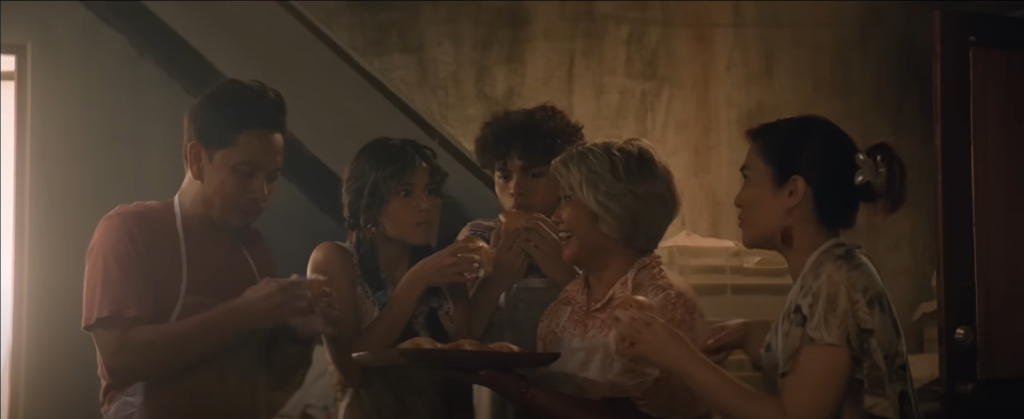Bambi (Vice Ganda) works as an OFW in Taiwan. She’s been working multiple jobs for many years in order to renovate their large family house. After not renewing a work contract, Bambi decides to return home to start a business. Unfortunately, Bambi finds the family house no better than it was when they left, thanks to a string of bad financial decisions from Bambi’s younger brother Biboy (Jhong Hilario).
That description may seem like this is an outright drama, but Jun Lana manages to make a bit of magic in this case: And the Breadwinner Is… is just as much a comedy as Vice Ganda’s other films, until it suddenly whacks you in the head with some top tier drama. Lana’s use of the camera, working in tandem with DP Carlo Mendoza, is a breath of fresh air in an industry where certain types of standard coverage (shot reverse shot scenes mainly) constitute the norm. Of note is the film’s emotional climax, where the camera weaves between characters and each frame also visually portrays their relationships with each other. This is the type of stuff that is shown in filmmaking classes as an example of what to do.

And the content of that climactic scene pretty much encapsulates the film’s central thesis, in an argument where everyone kind of has a valid point: why do breadwinners often exist in the singular? Why can’t a family help each other as a team during trying times? The characters of And the Breadwinner Is… have the choice to leave the roles they are currently in, though that’s easier said than done. And it’s not as if they want to stay – these people have tried their hardest to escape, but that only illuminates something deeply broken in Philippine society – that for a lot of people, it is very hard, if not near impossible to pull themselves up from the ground when they’ve stumbled. It is one of the ways where our society (and government) has failed to take care of its people.
If there is one thing I wish the film could have addressed better is the way it jumps around from one thing to another. The transitions between the film’s three acts is very much evident: for example, a certain bread related subplot fades into the background once the drama starts ramping up, and while it’s partially alluded to in the film’s mid-credits scene, it was a great opportunity to tie everything together. Still, I didn’t expect to get emotional at a Vice Ganda film, but here we are.
This review also appears on John’s blog, Present Confusion



